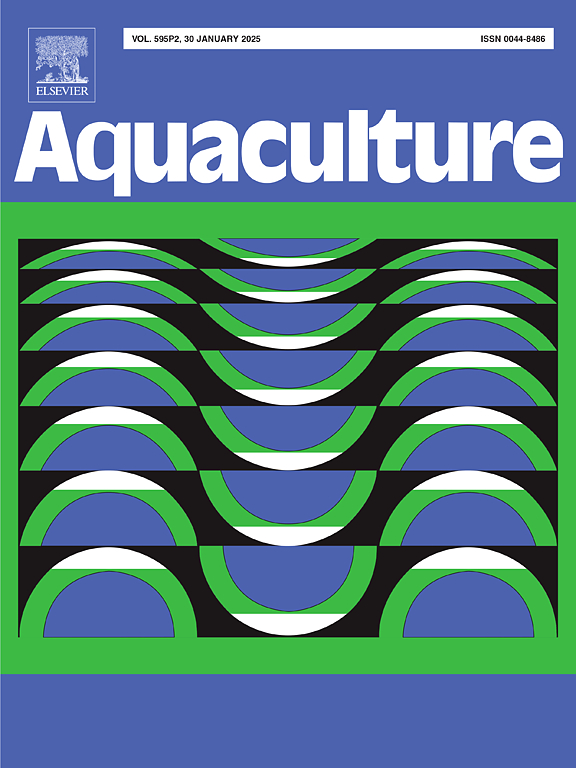The outer membrane vesicles of Vibrio parahaemolyticus elicit innate immune responses in mud crab (Scylla paramamosain)
IF 3.9
1区 农林科学
Q1 FISHERIES
引用次数: 0
Abstract
Outer membrane vesicles (OMVs) are extracellular nanostructures secreted by bacteria, which carry various virulence factors and play a pivotal role in the pathogenesis of bacterial infections. In this study, outer membrane vesicles derived from Vibrio parahaemolyticus (Vp-OMVs) were isolated to examine their effects on innate immunity in mud crabs (Scylla paramamosain). Characterization of the Vp-OMVs confirmed the presence of vesicles exhibiting typical OMV morphology and size. Vp-OMVs were internalized by host cells through clathrin-mediated endocytosis, leading to cytotoxicity, increased mortality, tissue vacuolation, and reduced cell viability. Furthermore, Vp-OMVs were found to contain lipopolysaccharide (LPS), which activates the Toll2 receptor, thereby initiating the Toll2 signaling pathway and promoting the expression of antimicrobial peptides. Additionally, internalized Vp-OMVs triggered inflammasome activation and mitochondrial dysfunction, resulting in inflammation and apoptosis. These findings highlight the critical role of Vp-OMVs in the pathogenesis of V. parahaemolyticus infections in mud crabs and offer valuable insights into potential therapeutic strategies for managing these infections.
求助全文
约1分钟内获得全文
求助全文
来源期刊

Aquaculture
农林科学-海洋与淡水生物学
CiteScore
8.60
自引率
17.80%
发文量
1246
审稿时长
56 days
期刊介绍:
Aquaculture is an international journal for the exploration, improvement and management of all freshwater and marine food resources. It publishes novel and innovative research of world-wide interest on farming of aquatic organisms, which includes finfish, mollusks, crustaceans and aquatic plants for human consumption. Research on ornamentals is not a focus of the Journal. Aquaculture only publishes papers with a clear relevance to improving aquaculture practices or a potential application.
 求助内容:
求助内容: 应助结果提醒方式:
应助结果提醒方式:


